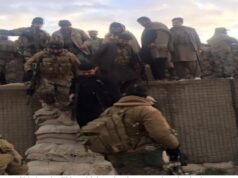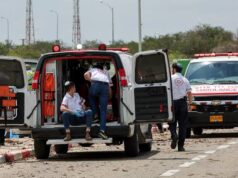Operation Pawan – Gone With The Wind

By
Colonel Awadhesh Kumar, Special Forces, Veteran
A few years back, I visited Sri Lanka for the second time. This visit was with my family with proper passport and visa, unlike the earlier one in October 1987. That time, I still remember the date 24 Oct 87,it was my last working day in the Unit. From next morning I was to be struck of Strength and thereafter move to my new place of posting. Since Commissioning in Jun 1978, I had been serving continuously for more than 9 years but the prospect of leaving “ home” was rather terrifying.
Next morning by 0800h our BATS Team was airborne with bearing set Southwards …..destination Jaffna. At the Udhampur airfield, our Tiger had growled …both the Nation and the IPKF have dialed 9 for assistance, so go and rescue the situation. My unit, ever since has remained perpetually on that very mode even till date.
At Tambaram we had de planed and sprawled on the green grass next to the tarmac. When signal was given to board, I picked up a pebble …mother India …just in case there was no return. When the aircraft took off, I saw my Team Commander too with fist closed. I looked at him pointing to his closed fist. He just opened it …a pebble was there. Then we noticed many of the men also with closed fists.
Though, I was posted out of the Unit after about 11 months and left Sri Lanka, the Unit remained for nearly 3 years and was one of the last to be pulled out, leaving behind 13 of our Comrades forever mingled with the dust of Sri Lanka. A few more left behind their hands or legs. Roughly 1200 all ranks were killed and another 3000 wounded, many disabled for life, during the Indian Peace Keeping Operation in Sri Lanka from Jul 1987 to March 1990. The Indian Flag had sailed from India not under an UN mandate but on the orders of the Supreme Commander to establish peace in Sri Lanka ….. the Indian Peace Keeping Force.
It returned back only after completing its given mission, let there be no doubt about it, though at a relatively high cost.
For nearly 34 years after Operation PAWAN commenced on 30 July 1987, this force had been forgotten by our elected political bosses.
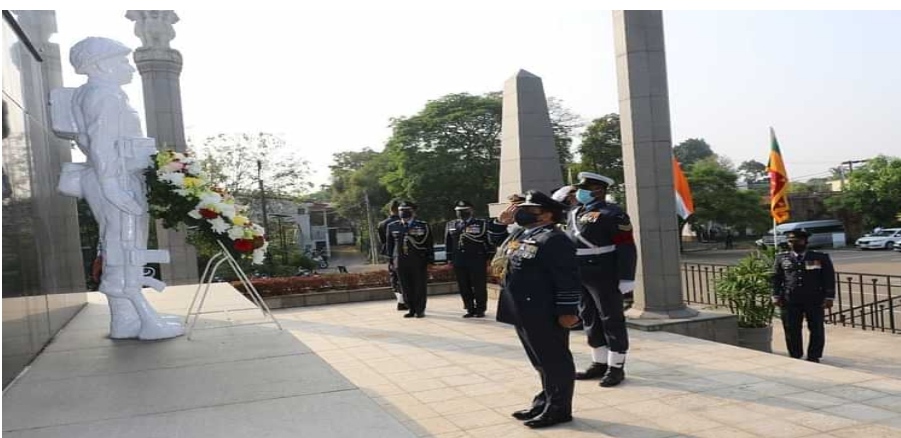
Chief of the Air Staff paying homage at the IPKF Memorial, Battaramulla at Colombo.
Yet after completing their mission, yes they ensured a proper election and did establish peace and thus completed the mission, IPKF was bewildered to see the response of the political class of that time both at the Central and State levels. Even the Paki prisoners of 1971 war had received a warmer welcome on reaching their Prisoner of War Camps in India, when arriving from Bangladesh. It has been one of the biggest blot on the Political leaders and the people of this Nation. Even the Armed Forces leadership must share the blame. They should have stood up to be counted. They should have firmly demanded a proper deal for the IPKF MARTYRS and other war casualties.
Successive Indian Governments kept demonstrating their ostrich like behavior for nearly three decades to recognize the true sacrifices of the IPKF soldiers. For 34 long years the Nation continued to dishonor itself. Why ? Just because few lowly personalities would get displeased ? Finally permission was given to numerous veterans of IPKF and other stakeholders to commemorate the anniversary of OP PAWAN on 29 Jul 2021 at the National War Memorial. The veterans of IPKF, the families of those who were martyred while carrying out their assigned duties, the entire Armed Forces and all those Indians who cared were reassured.
2
Sometime in May 87,I was ordered to rush down from beyond of back, somewhere in Zanskar to New Delhi. A Commando Cell was being created in the Military Operations with Colonel S S Mann as the Director. I was to assist him as an errand boy. Brig V P Malik ( later COAS ) was his immediate boss.
Even as a Captain, soon I could sense a flurry of planning activities concerning both up north in Siachen and down South in Jaffna. Mann was also tasked to handle Sri Lanka desk by the DGMO, Lt Gen B C Joshi.
While Brig Pervez Musharraf was planning his OP QAIDAT to recover Bana Post, Sri Lankan Army had initiated OP LIBERATION or Vadamarachi Operation to finish the Elem Tigers. So India initiated OP VAJRA to checkmate Musharraf and OP POOMALAI ( air drop of essential supplies ) to warn the Lankans.
Then on a very hectic day, Sukhi Mann came out of the Military Operations Room, to the Commando Cell ( the size of the room was actually like prison cell ) and said that India and Sri Lanka were to sign a peace accord. A division size IPKF would be sent to Sri Lanka to maintain peace and “ disarm “ the various Tamil Groups. He said that there were over a dozen tasks / Scenarios and added his prophetic word “ hope we don’t end up fighting the LTTE “.
By first week Jul, I was with my unit in the Kashmir valley, preparing to call on Brig Musharraf but his QAIDAT faltered. Instead on 25 Oct, I found myself in Palaly, Jaffna.
After around two months with the Unit, I along with three senior officers established the Ad hoc HQ Special Forces with Rustam K Nanavatty as the Commander. Another two to three weeks, all others were reverted to the units and I got elevated as “ Chief of Staff “ ( in lighter vein Commander had introduced me to a visiting General ). Later Sukhi Mann became the next Commander but I continued.
This Ad hoc HQ was directly under the HQ IPKF and also maintained direct link with Commando Cell at MO. Thus even as a lowly Captain, I had the daily SITUATION REPORT, etc of the entire IPKF and detailed reports of each division. We also had daily report of the LTTE, constructed from their intercepts ! ….They were very very accurate.
So as an overview, I can say that, floundering and falling and getting up, IPKF did a wonderful job. As happens every time with us, the Young Officers rose up to the occasion. The JCOs and NCOs initially bewildered ( not due to lack of courage) because in peacetime they were never given the initiative, also stood up and did a wonderful job.
The failure was at the Grand Strategy level. The politicos forgot that war is continuation of politics by other means ( or most likely they were just not aware of this fact !! How can it be ?).
Rajiv Gandhi rightly took the decision to display NATION WILL POWER. However the CCS, PMO, the External Affairs, and Defence Ministry and the Intelligence outfits faltered badly. The plans should have been made, scenarios worked out right up to the withdrawal.
Certain excerpts will highlight things for the readers.
One day on Rupavahini, Lankan TV, I had heard Shri Jayavardhane speaking to his Countrymen “ earlier our boys were getting killed, we were spending huge amounts on fighting. Now that money, I am able to spend on your welfare and it is the IPKF which is getting killed “.
Then there was a cartoon in the ISLAND showing Jayavardhane and Prabhakaran as boxers in the Rink. Rajiv Gandhi was the referee. However Jayavardhane was resting in one corner and Rajiv Gandhi bashing up Prabhakaran. While Jayavardhane saying “ referee don’t leave him “.
Another news some time in 1988 was the arrest of a Joint Director level officer of one of our Intelligence outfits for espionage. Thus indicating that our long term plans etc were compromised at various levels.
The SF had among other things captured one Capt Shukla of the LTTE who had been the Chief of Security of Anton Balasingham, another captain was wounded and captured and then Jyothi their “ Chief Signal officer “ and the “ finance Minister “. We had lot of meaningful talks with them. Then there used to be the captured documents, videos etc pouring all the time into our HQ.
LTTE was being pressurized to give up their weapons. When called to New Delhi for talks, Prabhakaran had found that he was virtually under arrest. So reluctantly agreeing over “ everything “ he got back. There Jayvardhane was shouting that IPKF had come on his request and would go back on his orders. Prabhakaran wanted a written assurance from India and a Statement to the effect in the Indian Parliament. Our side was reluctant to give this. Meanwhile India agreed to hand over around a dozen LTTE top cadre (arrested by Sri Lankan Navy ) to the Sri Lankans. Protest from LTTE notwithstanding. All of them committed suicide.
Final trigger was the decision to arrest the top leadership of LTTE by IPKF. Army HQ and 54 Division made a faulty assessment that things would get wrapped up in 48 to 72 hours. What we had seen on ground that LTTE military cadre was very well trained and efficient fighting force and experience of fighting the SLA, a very well trained force. LTTE Civil administration cadres were equally good. They were running a proper government in Jaffna, Vavuniya, Trinco and Batti and doing a job which appeared to be better than many of our State Governments of the time.
Then militarily, the Commanders on ground at various level from top downwards forgot the basic question “ what if LTTE and other groups refused to hand over their arms “. It seemed no one in the IPKF prepared for this basic scenario after arrival on the Island.
As per Captain Shukla and others, after arrival of the IPKF, orders had been issued by the LTTE top brass to hand over some of the unfit / older weapons to the IPKF but grease and store all other weapons bought / received from international market in secret hides. This was for the day when IPKF would go back, They had to be ready to defend themselves from other Tamil Groups like PLOT, TELO, EPRLF etc and of course the Sri Lankan Forces.
But then why did you fight us was our question. “ why you did ? was his retort ….because you were ordered to and so were we “. He said that when “ Our intelligence got the wind of IPKF impending plan which was to start on 11 Oct, our bosses surmised that LTTE was well prepared to take on an understrength, lightly armed IPKF for 48 to 72 hours. After that there would be intense political pressure in India to call for a ceasefire. Thus the bargaining stock of the LTTE would go up at the negotiating table. “
So on 10th night LTTE seized the initiative and IPKF walked into the IED warfare trap which had actually been planned and prepared to stop the Sri Lankans onslaught towards Jaffna during OP LIBERATION. Rest is history.
3
While travelling around in Australia, once we had visited a small picturesque town called Gosford near Sydney.
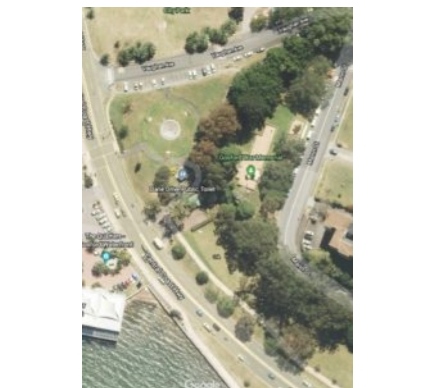
I was totally amazed at the War Memorial in that town. The way it was maintained and the way people placing fresh flowers and getting pictures clicked on a Sunday afternoon.
Most Australian towns have such memorials. Similar was the sight at Kandy in Sri Lanka.
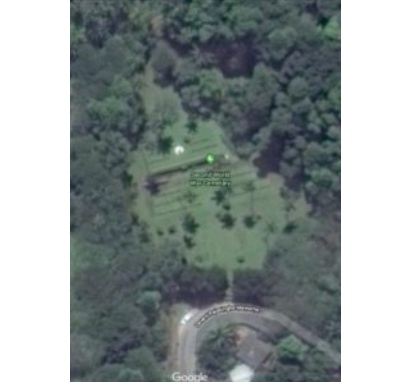
The war cemetery was beautifully maintained and had sites marked with fullest details of all the 30 odd Indians who had died on duty in Sri Lanka during World War 2. I spent nearly two hours, going through the details and signed the visitors book. The gardeners and the caretaker all came to ask me, if I was from the Indian Army and shook hands.
Next I also visited the IPKF war Memorial near Colombo. This memorial was mooted by President Premdasa and constructed by the Lankan Government in 2008. Names of all the 1265 soldiers killed in Action are there on the Black Marble. Five years later in 2014 the erstwhile IPKF HQ now designated as HQ 21 Corps too constructed an IPKF Memorial at its location in Bhopal. General A S Kalkat should have got it done long time back when he was the Southern Army Commander in 1993.
So what is required, besides the National War Memorial finally constructed by the express initiative and persistence of one man, is to have similar memorials (smaller scale) at various places from where soldiers have been martyred or awarded for valour.
I was also told in Colombo that a memorial for IPKF soldiers built in Palaly, Jaffna had once again been renovated declared open in June 2015 itself. The names of 33paratroopers of 10 PARA who had died in the operations in the Northern Province during 1987–1990 have been inscribed on a wall at the memorial site. Even the LTTE had respected this memorial after withdrawal of the IPKF.
4
A few years back, a political block and its supporters were dead against celebrating the ANNIVERSRY of the URI SURGICAL STRIKE. Then came a news item, welcomed by nearly all the Armed Forces Veterans regarding the Government of India plans to celebrate at the National Level the second anniversary of the ‘surgical strike’ undertaken by the Indian Army on September 29, 2016.
What was disheartening that this planned celebrations spread over two weeks starting 29 September had been termed as “ Political gimmick “ by certain political adversaries of PM Narendra Modi and a certain section of the Press has called it “ wasteful “.
The Celebrations of the surgical strike anniversary events was something distinct from say the VIJAY DIWAS or the ARMY DAY or say the INFANTRY DAY. This was to celebrate the NATIONAL WILL POWER DAY.
There are various parameters which measure the Power of a Nation. These are geographical size, population size, economic size, availability of natural resources, industrial -technological – scientific prowess, military size and capabilities etc.
The graded values of all these parameters are added to decide the overall National Power and the pecking order at the international level.
However there is one parameter whose values are not added but multiplied to the sum of all other powers and that is POLITICAL WILL POWER. In case the value of this power tends towards zero then the overall NATIONAL POWER also becomes zero.
For a major portion of our existence since 1947, our country has been suffering from deficiency of this POLITICAL WILL POWER. It was briefly displayed in 1947 -48 by Sardar Patel, by Nehru in ‘ 61 during liberation of Goa, then by Shastri during the 1965 Indo Pak War and by Indira Gandhi during the 71 War and the ‘74 Nuclear test and merger of Sikkim in 1975, by Rajiv Gandhi in 1987 when ordering IPKF into Sri Lanka and the Maldives Operations in 1988 and by Vajpayee in 1998 for nuclear weaponisation and later during Kargil Operations.
Therefore the purpose of the surgical strike anniversary was yes related to demonstration of ‘national political will’, one of the most important elements of power.It was indeed the NDA government which in the first place took a calculated risk to demonstrate THE POLITICAL WILL.
Osama Bin Laden, a spent force, was in hiding in Abbotabad and had become just a symbolic threat. So eliminating him was nothing great militarily. However OPERATION NEPTUNE SPEAR the raid which wiped him out became a galvanizing factor for not just the American military but the entire American Nation.
Similarly, many raids have been carried out by the Indian Army on the Pakistani Army front lines and some even behind it. However all of these were in the past at the behest of the Commanding Officer of a Unit itself or the local brigade commander.
Even when a clearance was given at higher level, a deniability clause was in built, if things went wrong ie our boys were killed behind the enemy lines or worst taken prisoners.
This was the first time when clearance was given at the highest political level, detailed planning was done at HQ Command level and full support given at GHQ level.
Next what is most important that people at all level were ready to take the blame in case things went wrong. Also for the first time India officially announced to the World that the Country’s Armed Forces had indeed carried out a strike behind the Pakistani military lines to destroy terrorist camps and was ready to do so again, if required.
In my view, the Strike should have been commemorated on the Strike Day with displays not only on the lawns of India Gate in the National Capital city but in all the State Capitals. Also any one trying to link these celebrations with the elections was at the least displaying narrow mindedness.
We need to honour our soldiers, not by mere lip service but periodically by display of such Public Celebrations.
We have been celebrating Vijay Diwas, the 1971 victory, the Kargil Diwas and similar historic events.
Such gestures are periodic reminders to the public of sacrifices made by the brave soldiers and to encourage and motivate the common man. Similarly the exploits of IPKF should not be forgotten by the Nation. They carried out the task assigned, at a cost, established the WILL of GOVT OF INDIA on the LTTE and others concerned and certainly returned Victorious. So just to placate a few politicians, the Nation cannot permit obscurity to the IPKF.
Not mentioning, IPKF on Army Day is certainly a mistake and needs to be rectified at all levels. Between the period 1987-88, seven out of then nine battalions of Parachute Regiment were deployed in Lanka / Maldives. Our current Chief too is a paratrooper, having served in an airborne outfit, so he has to just say “ Men Apart Every Member of IPKF was an Emperor “.

